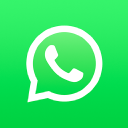How I Built A $2.5K/Month Prospecting Lead SaaS As A Side Hustle
Hello! Who are you, and what business did you start?
Hello, I’m Jean. I started this journey about a year ago. I started Fuelblock in Feb 2022 to provide early-stage SaaS startup leads to B2B businesses and agencies. This is my side hustle while working as a product director for a tech company.
In short, I’m providing leads of early-stage tech startups that have just raised funding to sell them as leads. It’s a subscription-based product, and every month, we send our customers a new set of leads.
Our main customer base includes digital agencies and b2b sales teams from various industries.
I’m making $2.5k MRR by being part-time on it. I have a demanding job where I make perfect money, and to be fully transparent, I’m hoping that one day, I’ll have the courage to quit and leap forward.



























